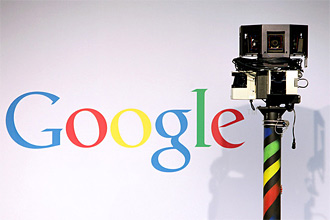
|  |  |  Technology News Technology News  
Google Says It Mistakenly Collected Data on Web Usage
 Jessica E. Vascellaro - WSJ.com Jessica E. Vascellaro - WSJ.com
go to original
May 15, 2010


| | The camera of a German Google Street View car looms over the car next to the Google logo at the Google stand at the CeBIT Technology Fair on March 3, 2010 in Hannover, Germany. (Getty) |  |
Google Inc. said an internal investigation has discovered that the roving vans the company uses to create its online mapping services were mistakenly collecting data about websites people were visiting over wireless networks.

The Internet giant said it would stop collecting Wi-Fi data from its StreetView vans, which workers drive to capture street images and to locate Wi-Fi networks. The company said it would dispose of the data it had accidentally collected.

Alan Eustace, senior vice president of engineering and research for Google, wrote in a blog post that the company uncovered the mistake while responding to a German data-protection agency's request for it to audit the Wi-Fi data, amid mounting concerns that Google's practices violated users' privacy.

Google had previously said it was collecting the location of Wi-Fi hot spots from its StreetView vehicles, but not the information being transmitted over those networks by users.

"It's now clear that we have been mistakenly collecting samples of payload data from open (i.e. non-password-protected) Wi-Fi networks, even though we never used that data in any Google products," wrote Mr. Eustace. "We are profoundly sorry for this error and are determined to learn all the lessons we can from our mistake."

Google said it has been collecting and keeping the data since around 2007. At that time, the team building the software to gather the location of Wi-Fi hot spots mistakenly included some experimental software that sampled all categories of publicly broadcast Wi-Fi data.

"It is another example of the how the company hasn't effectively grappled with the massive amount of information it collects," said Jeffrey Chester, executive director of the Center for Digital Democracy.

Due to the mistake, Google could have collected information about which websites people were accessing, from online videos they were watching to emails they were sending.

But Google would only have collected data if the website and the Wi-Fi connection weren't secured. Many major websites that carry personal information, such as financial-services sites, are encrypted so no data from such services were collected, a Google spokesman said. Mr. Eustace wrote that Google only had "fragments" of data, since its cars were on the move.

Google uses the Wi-Fi data to improve its location-based services. By having a database of Wi-Fi hot spots, Google can identify a mobile user's approximate location based on cell towers and Wi-Fi access points that are visible to their device. A Google spokesman said the company would continue to offer those products.

The disclosure comes as Google's collection of Wi-Fi data—along with other real-life imagery it uses in its mapping services—have come under intense scrutiny from some privacy advocates, specifically in Europe. In April, Google moved to defend the service and what it collects in a lengthy blog post in which it said it did not collect or store payload data.

Write to Jessica E. Vascellaro at jessica.vascellaro(at)wsj.com
|

 |
|  |



